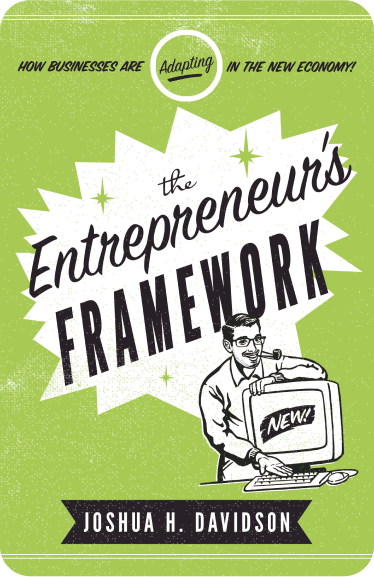“There is one thing stronger than all the armies in the world, and that is an idea whose time has come.” – Victor Hugo
Launching an app in 2022 can be a costly endeavor. Investing in the right technology that can scale, however, is priceless. Companies and startups out there know this.
The question they may be asking themselves today is exactly how and where to find funding to make this happen. There’s always the VC option — but if you’re looking to bootstrap, so you can build your app without giving up equity, this is the post for you.
The Situation for Small Businesses
Traditionally, only 3% of venture funding goes to women-led companies, and less than 1% to people of color. And while 30% of all businesses are founded by women, they receive just 5% of small business loans.
Competition is high, but so is opportunity — if you know where to look.
We’ve compiled a list of the best funding resources to look into if you’re a non-technical founder or small business owner looking for funds to build an app or prototype.
Grants for Small Businesses from the NASE
First things first: let’s get the ‘free money’ out of the way.
If you’re a self-employed micro-business owner and you’ve been a member of the National Association of the Self-Employed for at least three months, you can apply for a grant of up to $4,000. By signing up as an Annual Member (i.e. paying the full membership fee at sign-up), you can apply immediately!
Check out Grantwatch
GrantWatch is an online resource that is constantly in touch with grants’ program managers and reviews numerous publications to make sure that GrantWatch.com provides subscribers with the most up-to-date grant opportunities.
Be sure to bookmark this site as a future resource and check back regularly, or sign up for email updates! You never know when a grant you qualify for may be up for grabs that you don’t have to pay back!
Funding Circle for Businesses In Operation At Least 3 Years
This isn’t a viable option for most startups right away, or even when many are looking to build an app — as some startups use apps as the vehicle to kickoff their entire venture.
If you’ve been in business for at least three years and made $500K in revenue last year, you may qualify for a sizable loan from Funding Circle.
Check out Fundera
Businesses making at least $100K per year qualify for a loan from Fundera. Offering access to SBA 7(a) loans, term loans, invoice factoring, Fundera strives to get businesses funding faster than their bank.
Crowdsource Your Dream With Kiva

Of all of these funding options, Kiva is perhaps our favorite here at Chop Dawg.
Their mission of empowering underserved people with access to an online lender community to crowdsource their dream truly resonates with ours.
Any entrepreneur over 18 with a business-related expense qualifies for a loan of up to $15,000 from Kiva.
The catch? Your loan is being entirely crowdsourced to individuals from around the world who want to help small business owners and entrepreneurs succeed for as little as $25. It all depends on how much you’re able to raise.
Kiva is truly a startup-friendly lending platform, and we are here for that!
Access A Wide Range of Loan Options With OnDeck
While OnDeck is more for small businesses than brand-new startups based on their requirements, the variety of loans available and accessibility are great.
Applicants must be in business for more than one year, have at least $100K in annual revenue, with a business bank account and personal FICO score of at least 600.
Borrow with Lendio
Lendio makes it easy — with one simple application and no fee, you can compare 300+ lenders and access funding in as little as 24 hours. From lines of credit, to long-term loans, they have you covered.
They even have startup funding available with a credit score of 680 or higher, and if you’ve been in business for at least six months. Many startup loans require collateral to qualify, and look for individuals with experience in the field they’re looking for funding in.
Brex Credit Card for Startups
The Brex Card for Startups doesn’t hold you personally responsible for repaying the money your business spends and won’t impact your personal credit.
Unlike many business credit cards, it doesn’t require a personal guarantee. That means that as a founder, you aren’t legally obligated to take money out of your personal bank accounts to pay for your startup’s credit card bills. And it can be tough to find a business credit card with no personal guarantee.
What’s more?
The Brex Card for Startups has a $0 annual fee and limits 7-10% higher than traditional credit cards. Its geared towards early-stage corporations and tech companies, with many startup-driven perks like rewards for ride sharing, eating out, travel and software subscriptions.
But this is technically a corporate card, and there are some additional requirements for the card that could make it tough to qualify for, as you’ll need a U.S. EIN number and proof of at least $100,000 in revenue for the previous year.
Seek Out Community Development Finance Institutions
There are thousands of nonprofit community development finance institutions (CDFIs) across the country — all providing capital to small business and micro-business owners on reasonable terms.
Check out this CDFI locator to find one you may qualify to work with!
CDFIs typically don’t require nearly as much collateral as a traditional banking lender, and are willing to consider explanations behind any black marks in an individual’s credit history. Their primary mission is to fund small businesses and nonprofits serving the community to drive development.
In essence, they are mission-driven lenders — in the loan provider industry, this is rare, indeed.
There are options when it comes to bootstrapping your venture

We scoured the internet for resources when it comes to funding for startups and small businesses outside of the VC firms and angel investors, accelerator programs, startup competitions, and traditional banking institutions that also abound.
Regardless of what the media might say, raising money and VC-driven growth is not your only option!
Since 2009, we have helped create 400+ next-generation apps for startups, Fortune 500s, growing businesses, and non-profits from around the globe. Think Partner, Not Agency.
Find us on social #MakeItAppn®

















